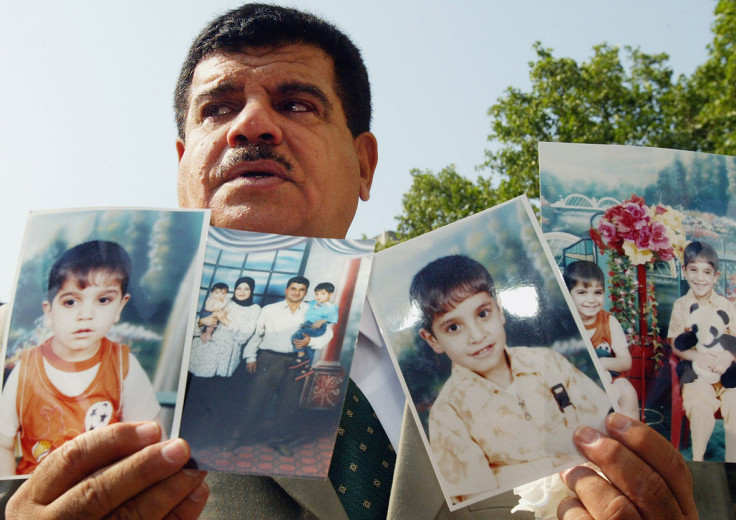Soldiers should not operate outside of human rights law
Government claims to be doing troops a favour, but it's simply sweeping MoD's mass failings under the carpet.

Our new prime minister has shown her true colours. Despite launching her leadership on a ticket of fairness and equality, Theresa May has already started stripping away people's basic rights.
After weeks of spin and posturing where facts have been notable by their absence, ministers have announced a plan to opt out of the European Convention on Human Rights (ECHR) in future conflicts. So next time the UK becomes involved in a foreign war, our servicemen and women will leave their rights at home – and the people they will be sent to protect will lose the vital safeguards that ensure they are treated humanely.
The government claims to be doing troops a favour. But behind the spin is a plan to hide the MoD's failings, withholding justice from all those who suffer when the army gets things wrong, whether that is soldiers who are not given the right equipment or training, or victims of lawless abuse.
Take the tragic case of Corporal Anne-Marie Ellement. She was serving in Germany as a military police officer when she alleged that she was raped by two colleagues. After being bullied and suffering "work-related despair", she killed herself in 2011.
Without human rights, Ellement's family would never have been able to know the truth about what happened to her, and the army would never have been forced to face up to the abusive culture that existed in its barracks. It was by using human rights law that Ellement's family eventually persuaded the MoD to set up an independent body to investigate complaints by soldiers.
Or look at the Snatch Land Rover families. At least 37 UK soldiers died in these hopelessly inadequate vehicles, which earned the nickname "mobile coffins", during the wars in Iraq and Afghanistan.
In 2013, their families used human rights law to hold the MoD to account for failing to protect their loved ones. The MoD fought tooth and nail to persuade judges that they should not be held responsible – using the same arguments that May is relying on today. Thankfully justice was done, and the MoD was held to account for its failure to protect its soldiers and its breach of their human rights.
At a time when reports are emerging from Syria of horrific attacks on civilians and humanitarian workers, such a move sets a disastrous example on the global stage
If human rights stopped at our borders, these servicemen and women – and their families – would have been deprived of any semblance of justice. There is no doubt that cases like this – shameful and inconvenient for the MoD – are a driving force behind the government's announcement.
For the purposes of spin, of course, government rhetoric and press briefings have steered well clear of drawing attention to these tragic cases.
Instead it has focused on vilifying human rights lawyers. But the uncomfortable truth is that – just as happened with the police during the Hillsborough disaster or the carers at Winterbourne View hospital – power is sometimes abused by those that have the monopoly on force and control. And when things go wrong, it is human rights law that is there to shine a light on injustice and make sure that victims and their families can stand up to the few soldiers who abuse their power.

Baha Mousa, a 26-year-old Iraqi hotel receptionist with a young family, was beaten to death by British troops in 2003. Mousa's 22-year-old wife had died of cancer shortly before his death, so his two young sons were left orphaned. A public inquiry, possible only because of human rights law, found that British soldiers had subjected detainees to "serious, gratuitous violence".
Mousa was found to have sustained at least 93 injuries to his body, and the inquiry reported soldiers routinely used banned interrogation techniques. These terrible abuses resulted in broken bones, damage and swelling to internal organs, and post-traumatic stress disorder.
Sadly, this is not an exceptional case. The MoD recently apologised for the mistreatment and death of a 15-year-old boy, Ahmad Jabbar Kareem, in May 2003.
He was unlawfully detained by British troops in Basra during a period of looting and was "aggressively manhandled and assaulted" during his arrest and detention. He – along with several other detainees – was then forced at gunpoint into a canal, where he drowned. The report found that the soldiers simply walked away as Kareem struggled for life. These, and the 325 other cases brought by abuse victims that the MoD has settled, point to failings on a mass scale that must be scrutinised, not swept under the carpet.
Responding to such appalling abuses by opting out of the law designed to prevent them is an insult to every soldier and every civilian that has been failed by the MoD. And at a time when reports are emerging from Syria of horrific attacks on civilians and humanitarian workers, such a move sets a disastrous example on the global stage – weakening our argument that other governments should observe the law.
Britain should be proud of the high human rights standards to which it holds itself and its Armed Forces. It was, after all, Conservative British lawyers who drafted the ECHR – specifically designing it in the aftermath of the Second World War to apply both on the street and the battlefield.
Blaming human rights law might let the MoD hide inconvenient truths – but if we want any influence on the world stage, we must play by our own rules.
Martha Spurrier is a human rights lawyer and director of Liberty, the National Council for Civil Liberties
© Copyright IBTimes 2024. All rights reserved.






